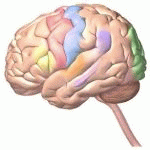Neurology
|
4 september 2015 13:47:08 |
| A septo-temporal molecular gradient of sfrp3 in the dentate gyrus differentially regulates quiescent adult hippocampal neural stem cell activation (Molecular Brain) |
|
Tweet Background:
A converging body of evidence indicates that levels of adult hippocampal neurogenesis vary along the septo-temporal axis of the dentate gyrus, but the molecular mechanisms underlying this regional heterogeneity are not known. We previously identified a niche mechanism regulating proliferation and neuronal development in the adult mouse dentate gyrus resulting from the activity-regulated expression of secreted frizzled-related protein 3 (sfrp3) by mature neurons, which suppresses activation of radial glia-like neural stem cells (RGLs) through inhibition of Wingless/INT (WNT) protein signaling.
Results:
Here, we show that activation rates within the quiescent RGL population decrease gradually along the septo-temporal axis in the adult mouse dentate gyrus, as defined by MCM2 expression in RGLs. Using in situ hybridization and quantitative real-time PCR, we identified an inverse septal-to-temporal increase in the expression of sfrp3 that emerges during postnatal development. Elimination of sfrp3 and its molecular gradient leads to increased RGL activation, preferentially in the temporal region of the adult dentate gyrus.
Conclusions:
Our study identifies a niche mechanism that contributes to the graded distribution of neurogenesis in the adult dentate gyrus and has important implications for understanding functional differences associated with adult hippocampal neurogenesis along the septo-temporal axis. |
| 159 viewsCategory: Neurology |
 Endotoxin-induced inflammation down-regulates l-type amino acid transporter 1 (LAT1) expression at the blood–brain barrier of male rats and mice (Cerebrospinal Fluid Research) Endotoxin-induced inflammation down-regulates l-type amino acid transporter 1 (LAT1) expression at the blood–brain barrier of male rats and mice (Cerebrospinal Fluid Research)Singapore Tele-technology Aided Rehabilitation in Stroke (STARS) trial: protocol of a randomized clinical trial on tele-rehabilitation for stroke patients (BMC Neurology) 
|
| blog comments powered by Disqus |
MyJournals.org
The latest issues of all your favorite science journals on one page
The latest issues of all your favorite science journals on one page



